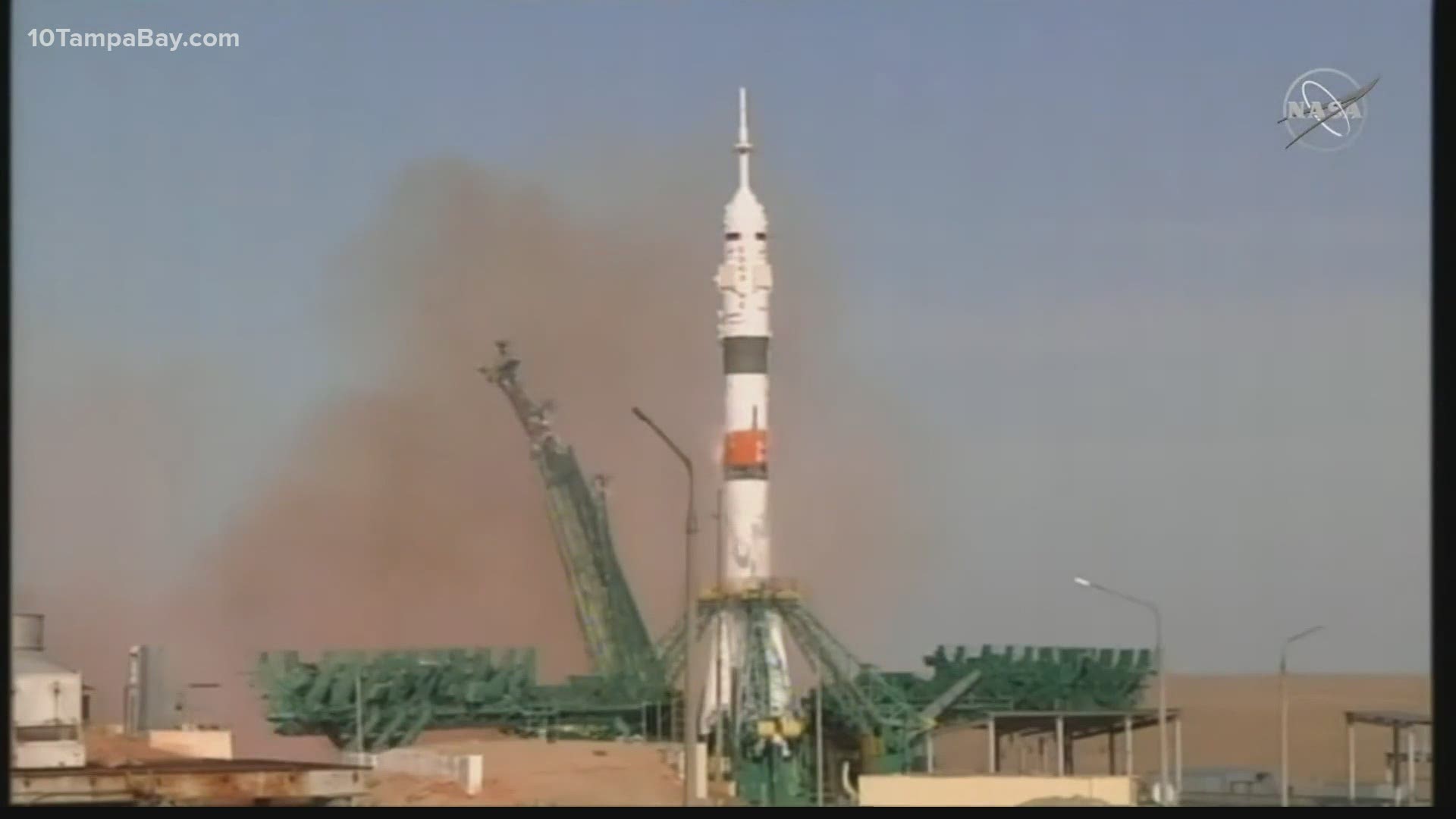BAIKONUR, Kazakhstan — Editor's note: The video in the player above shows a 2020 launch of the Russian Soyuz to the International Space Station.
It hasn't been smooth sailing — well, smooth orbiting — for Russian cosmonauts aboard the International Space Station as of late.
In just a three-month span, Roscosmos has faced three issues aboard the ISS. Two of which put the internationally shared laboratory out of orientation.
Trouble first started back in July 2021 when an "unplanned firing" of Russia's new Multipurpose Laboratory Module pushed the orbiting laboratory out of orientation.
"At 12:45 p.m., the flight control team noticed the unplanned firing of MLM thrusters that caused the station to move out of orientation. Ground teams have regained attitude control and the motion of the space station is stable," NASA wrote at the time.
The incident forced NASA and Boeing to stand down from its Starliner Orbital Flight Test-2 mission.
Then in September, smoke alarms rang out in the Russian segment of the International Space Station due to smoke and reports of the smell of burnt plastic. According to the Associated Press, the incident took place while the station's batteries were recharging.
One month later, the problems did not stop. Another temporary change to the International Space Station's orientation occurred during the Soyuz MS18's engine testing.
Interfax reports the ISS was turned 57 degrees during the incident before it was "swiftly recovered."
Rumblings emerged earlier this year about Russia potentially leaving the football field-sized orbiting laboratory it helped build in 1998, per several news outlets, citing Roscosmos chief Dmitry Rogozin, to build their own.
But in the months since, it appears Russia has changed its mind.
"This is a family where a divorce within a station is not possible," Rogozin told CNN in an interview.
He also blamed the confusion over Russia's status when it comes to the ISS on an interpretation problem.
"I think there's a problem in interpretation. I most likely did not say that," Rogozin said. "It's just that we're talking about how we can continue our comradery, our friendly relations with our American partners when the U.S. government is implementing the sanctions against the very same organizations which supply the International Space Station."
A departure from Russia would have essentially caused more than two decades of cooperation with the U.S. aboard the space station to come to an end.

